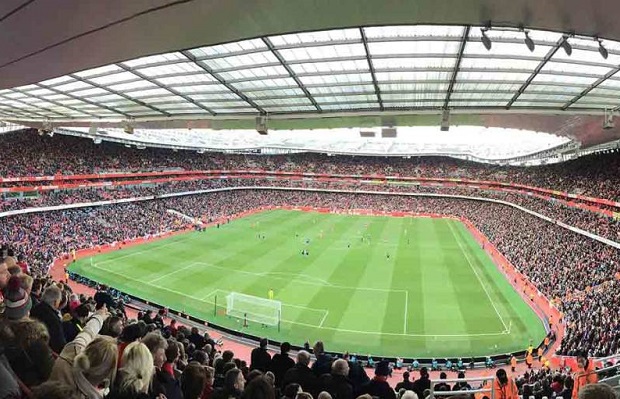- Confirmed line-ups: Ipswich Town vs Arsenal – Trossard & Zinchenko start
- Arsenal make enquiry for Italian midfielder Nicolò Rovella
- Arsenal in strong position to sign Viktor Gyokeres
- Arsenal ‘best positioned’ to sign Lyon ace Rayan Chekri
- Arsenal learn Benjamin Sesko’s asking price from RB Leipzig
- Arsenal plot audacious swoop to sign Ousmane Dembele
- Arsenal showing ‘concrete’ interest in Kingsley Coman
- Arsenal in front of the queue to sign Jesus Rodriguez
- Arsenal eye AC Milan’s Malick Thiaw for summer move
- Arsenal want Guler & Endrick in a surprise swap deal
Premier League Profit and Sustainability Regulations
The domestic season may be over, but things are far from quiet on the football front. Aside from events in Germany, the transfer news ticker is now lumbering into gear, giving fans and punters at the excellent new betting site NRGbet plenty to ponder.
Arsenal, like the majority of the other Premier League clubs, have been a little slow out of the traps on the transfer front. However, expect activity to increase in the coming weeks as clubs clamour to comply with Profit and Sustainability Regulations – with the likes of Aston Villa and Chelsea already coming to mutually beneficial agreements.
In recent seasons, financial prudence has become a significant focus for Premier League clubs due to the implementation of Profit and Sustainability Rules (PSR). These regulations are designed to ensure clubs operate within their means, balancing expenditure with income to maintain financial stability and competitiveness. However, recent breaches and subsequent sanctions have highlighted complexities and potential shortcomings, prompting discussions about future reforms.
Understanding the Current PSR Framework
The PSR framework allows clubs to incur a maximum loss of £105 million over a rolling three-year period, provided £90 million of this loss is covered by secure funding from owners. Clubs without such financial backing can only lose £15 million over three years. These figures exclude expenditures on youth development, infrastructure projects, and other categories deemed beneficial to the sport. Many fans believe this situation protects the wealthiest clubs, making it increasingly difficult for smaller sides to gatecrash the upper echelons of the league.
The amortization of transfer fees is another key aspect of PSR. Clubs can spread the cost of a player’s transfer fee over the length of their contract, up to a maximum of five years. This accounting practice helps clubs manage their financial statements more effectively, allowing them to invest in players without immediate full financial impact.
Recent Breaches and Sanctions
The recent sanctioning of Everton was a significant moment for financial regulations. Everton were initially docked 10 points for exceeding the allowable losses, a penalty later reduced to six points on appeal. Their losses, which they claimed were £87.1 million after allowable exclusions, were recalculated by the Premier League to £124.5 million, nearly £20 million above the threshold.
Nottingham Forest also faced sanctions, with a four-point deduction for similar breaches. Forest argued that their breach was partly due to a delayed player sale, which would have helped balance their books. However, the independent panel did not accept this as a mitigating factor.
These cases – in addition to the ongoing investigation into Manchester City’s alleged financial misconduct – have underscored the need for clubs to adhere to the financial regulations.
UEFA’s Role and Comparative Regulations
UEFA has its own financial regulations, previously known as Financial Fair Play (FFP). These rules are being replaced by new profit and sustainability measures that permit clubs to lose up to €60 million over three years, with an additional allowance for clubs in good financial standing. UEFA’s regulations also introduce a “squad cost” ratio, capping spending on wages, transfer fees, and agent costs to a percentage of club income, which will tighten to 70% by the 2025/26 season.
Potential Reforms and Future Directions
In response to the challenges and criticisms of the current system, the Premier League is considering aligning more closely with UEFA’s rules. This includes the proposed introduction of a model allowing clubs to spend up to 85% of their revenue on squad costs, with penalties for exceeding this limit. These potential reforms aim to provide greater financial stability while maintaining a competitive balance within the league.
The Premier League’s new proposals would also feature trial regulations such as the Squad Cost Rules (SCR) and Top-to-Bottom Anchoring Rules (TBA) to be tested on a non-binding basis.




